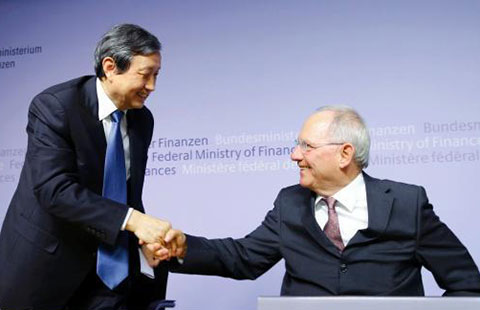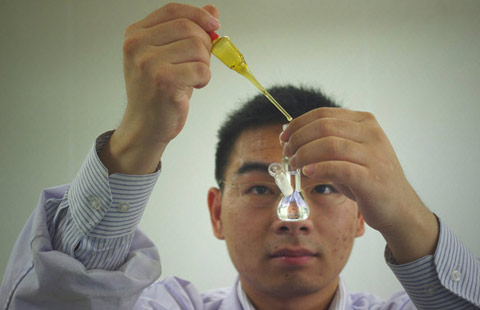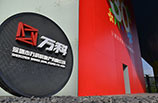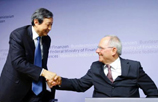Shanghai 'magic' drug caters to global needs
By Wang Ying (China Daily) Updated: 2015-03-23 07:59
Only 10 percent of the city's time-honored brands make a profit, and those with the potential to succeed overseas are limited.
There is no recipe for success abroad but brands must be mindful of the markets in which they operate, according to Jiang Weihong, a researcher from the Shanghai Academy of Social Sciences.
Shanghai Zhonghua Pharmaceutical Co Ltd exports its essential balm to over 80 nations and regions. It is promoted as "Oriental magic medicine" and sold mostly under the Dragon and Tiger brand.
However, in certain markets it uses a different name due to cultural considerations, said Ding Jialong, the company's general manager.
"In some foreign cultures, dragons are not considered lucky. Instead they may be perceived as violent or dangerous, so we registered the same product under the Temple of Heaven brand for some places."
White and brown versions of the balm were developed to appeal to different tastes after the company conducted market research overseas in the 1970s. The ointment is most popular in Africa, with up to 60 percent of exports heading in that direction.
Warrior shoes generated overseas sales revenue of $9.8 million in 2014 by selling 1.5 million pairs, and income from the US market made up almost half of this, or $4.5 million. This year, Warrior hopes to set an export record of $12 million (1.8 million pairs).
But behind the numbers lies the awkward reality that a huge chunk of its overseas sales derive from having its shoes labeled as Vans, Keds, Levi's, Pony or Converse.
Breaking the bottleneck in terms of overseas sales requires figuring out how to promote Chinese culture, said Zhang Yuming, deputy general manager of the company's export division. Although Warrior is a fairly well-known brand of athletic shoes in China that dates back to 1927, it is new to Western customers.
- Israel requests to join Asian Infrastructure Investment Bank
- Chinese stocks rebound on April 1
- China, the West in Africa: more room for cooperation than competition
- Nanjing cuts taxi franchise fees
- Air China increases flights to Milan, Paris
- JD.com raises delivery charges
- Veteran corporate strategist upbeat about China economy
- L'Oreal China sales revenue up 7.7% in 2014

















